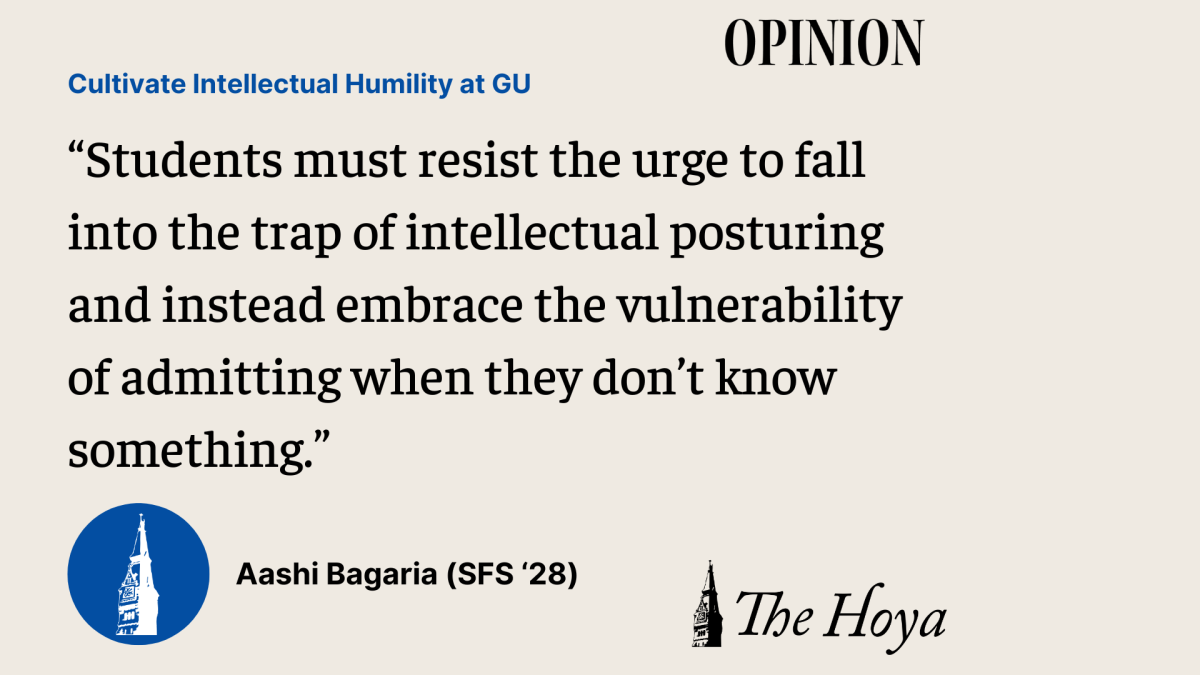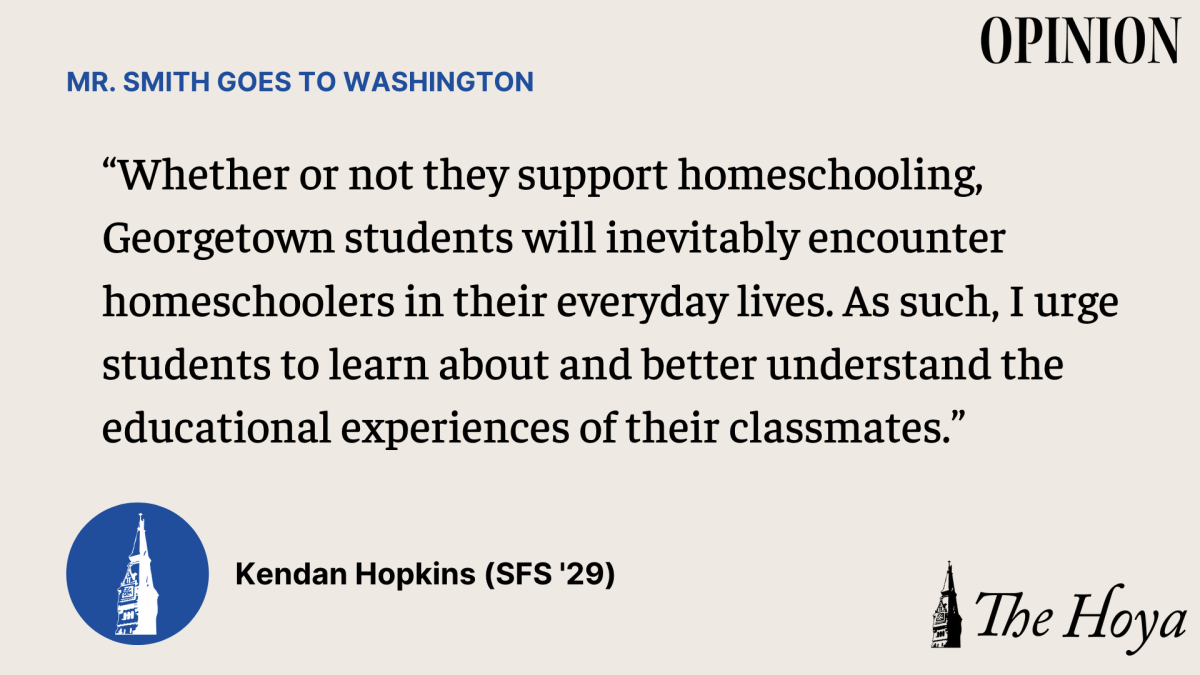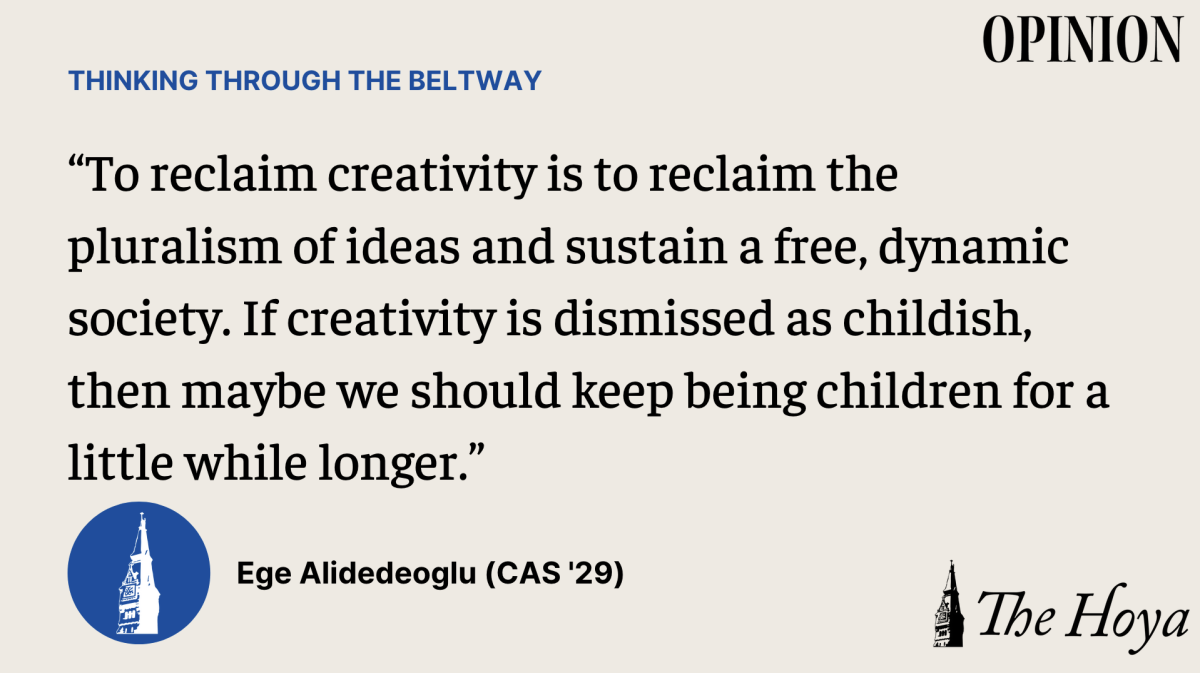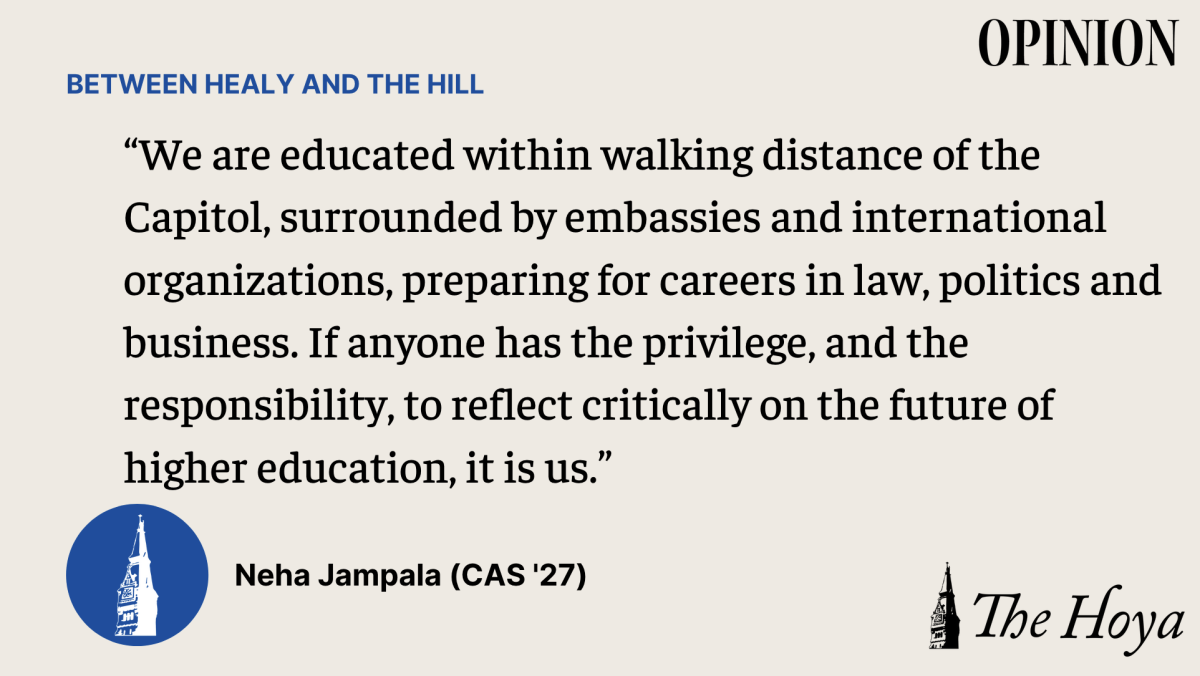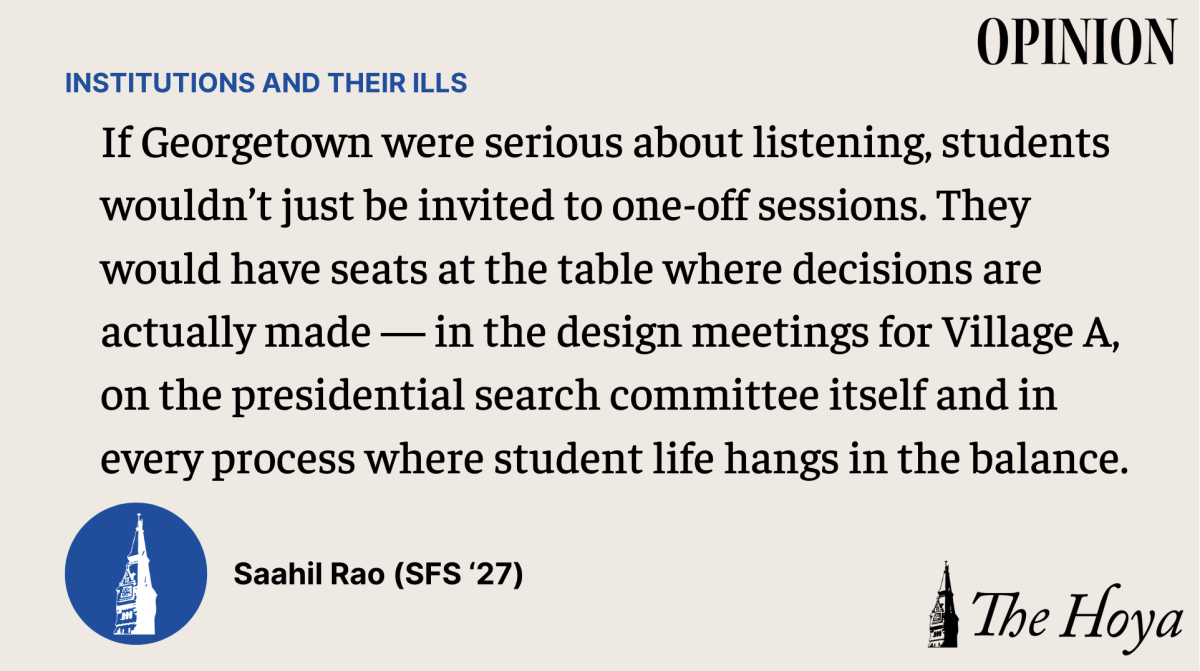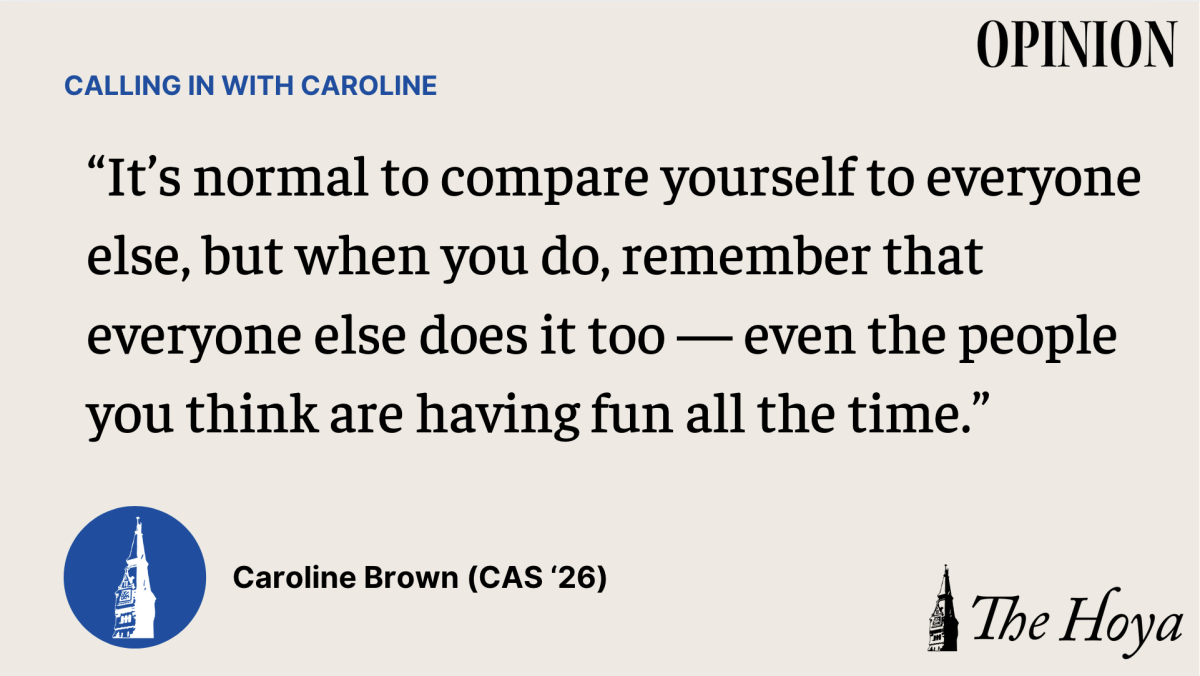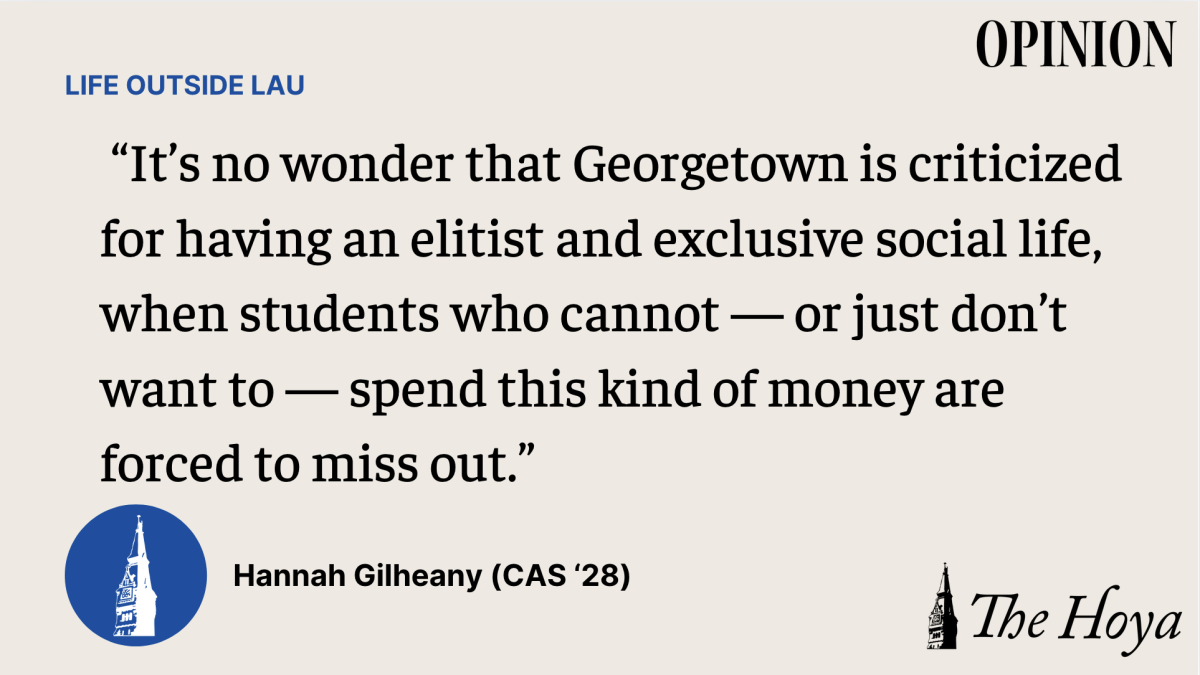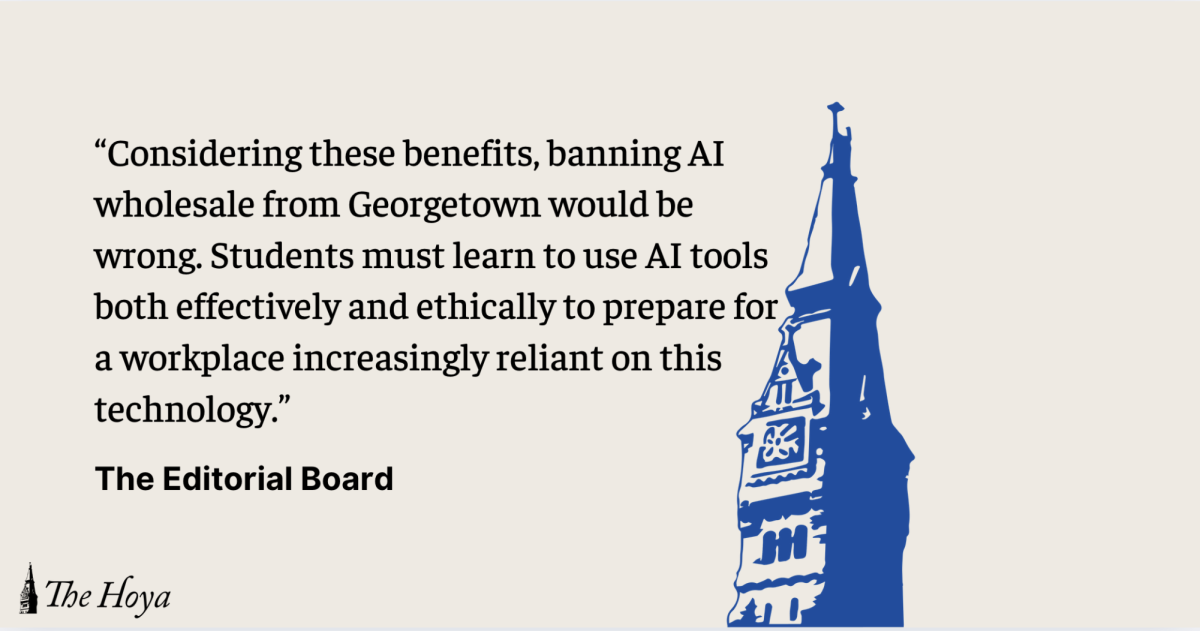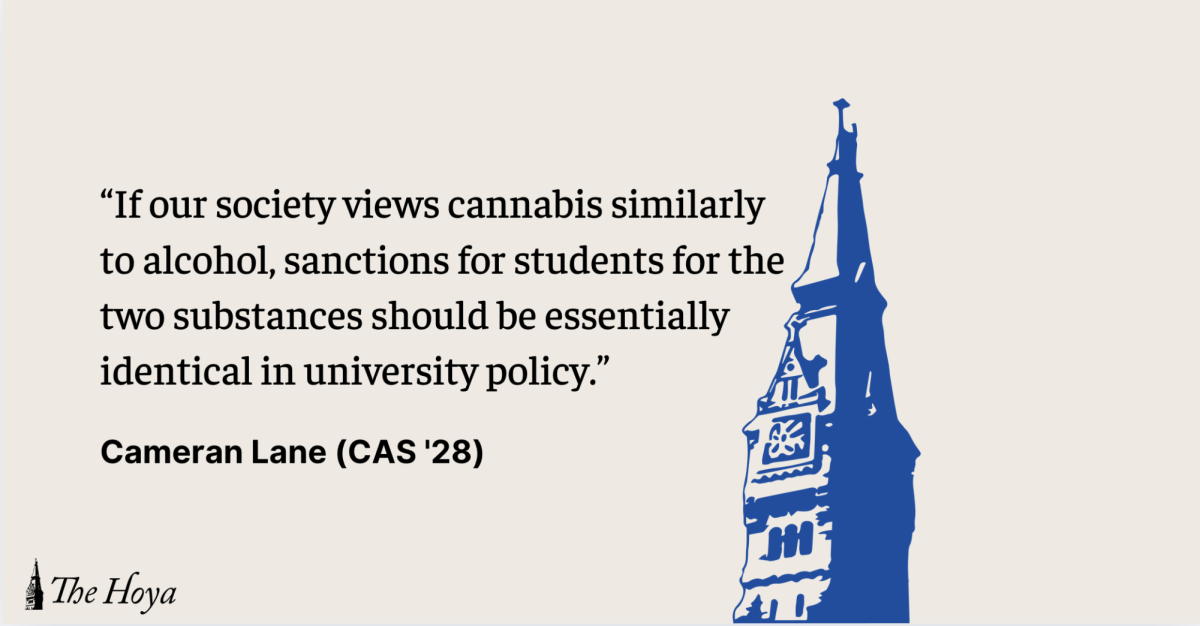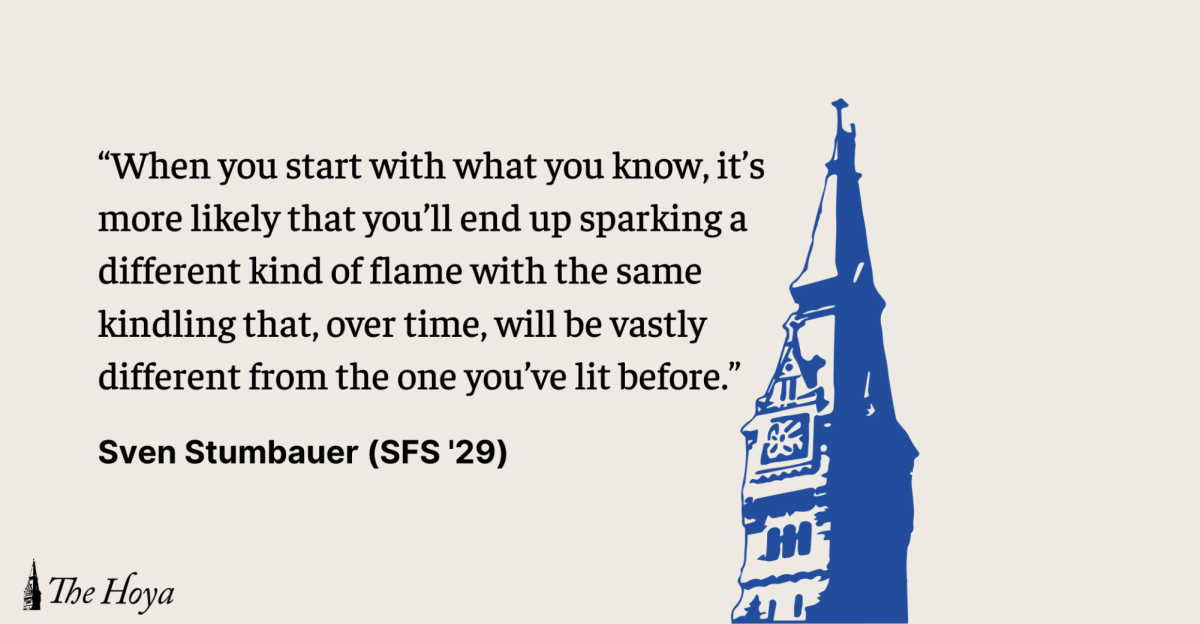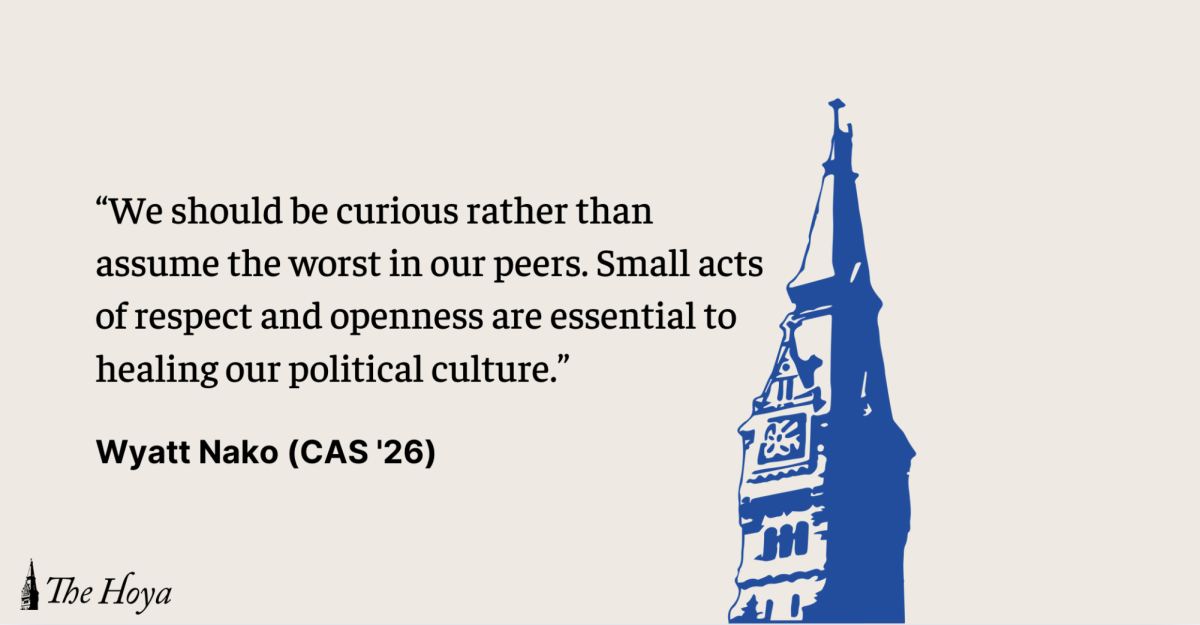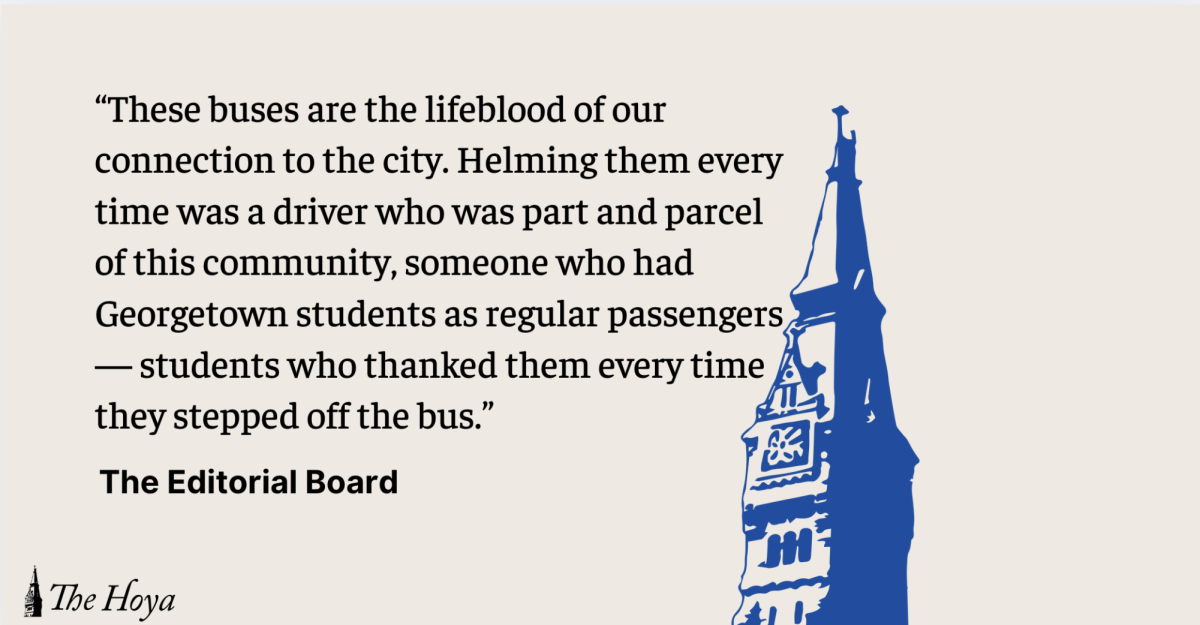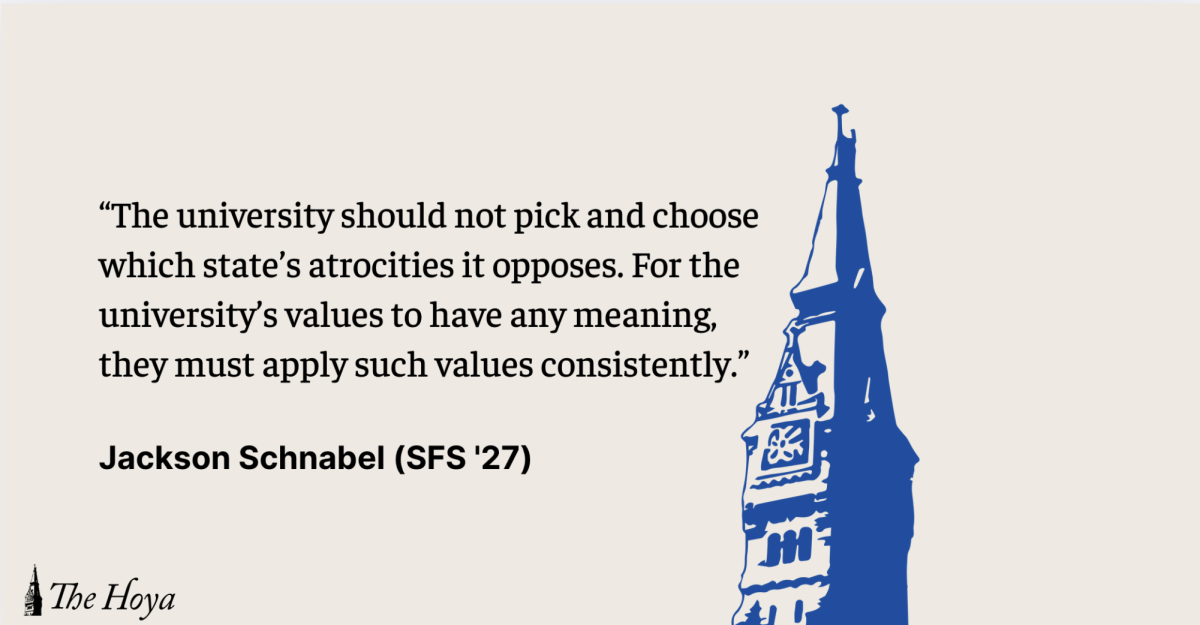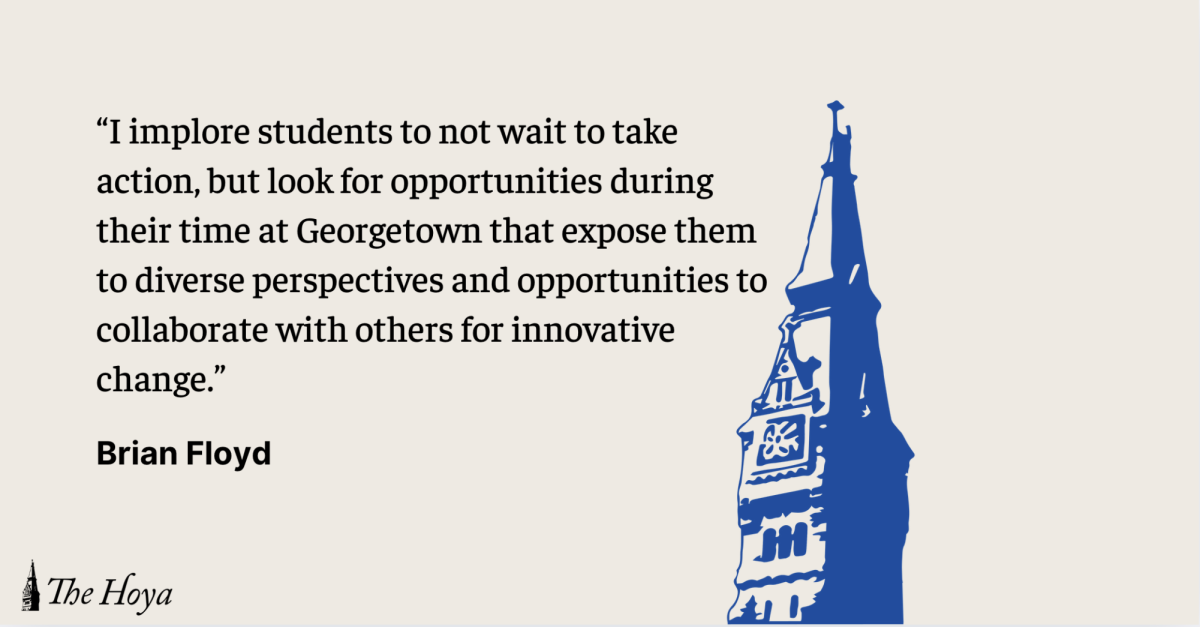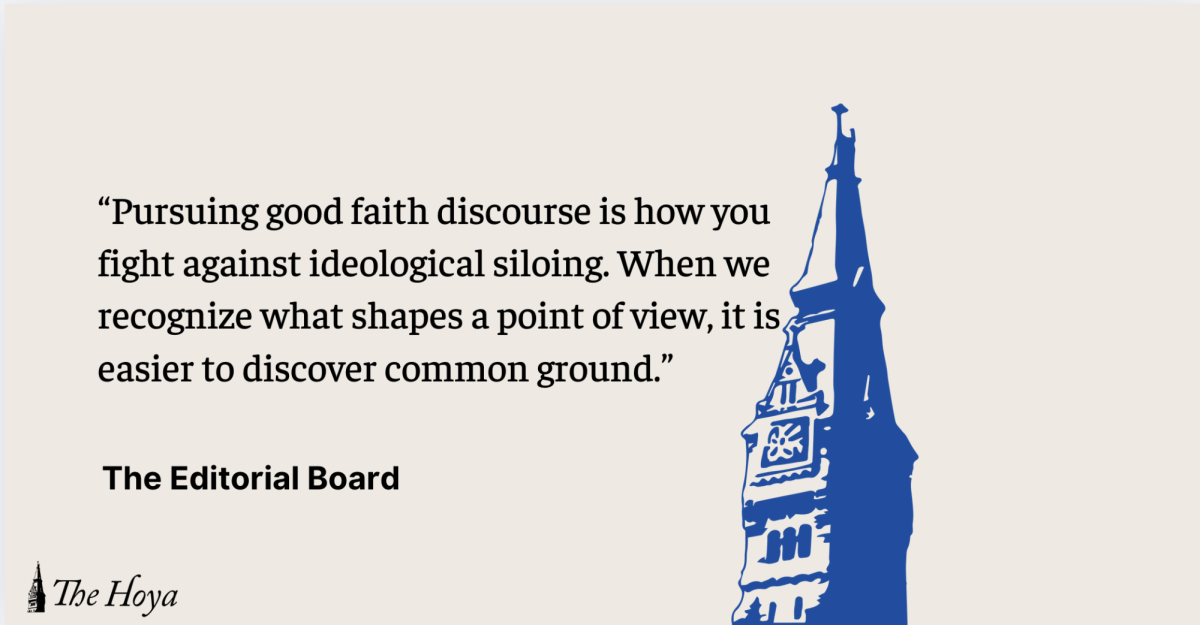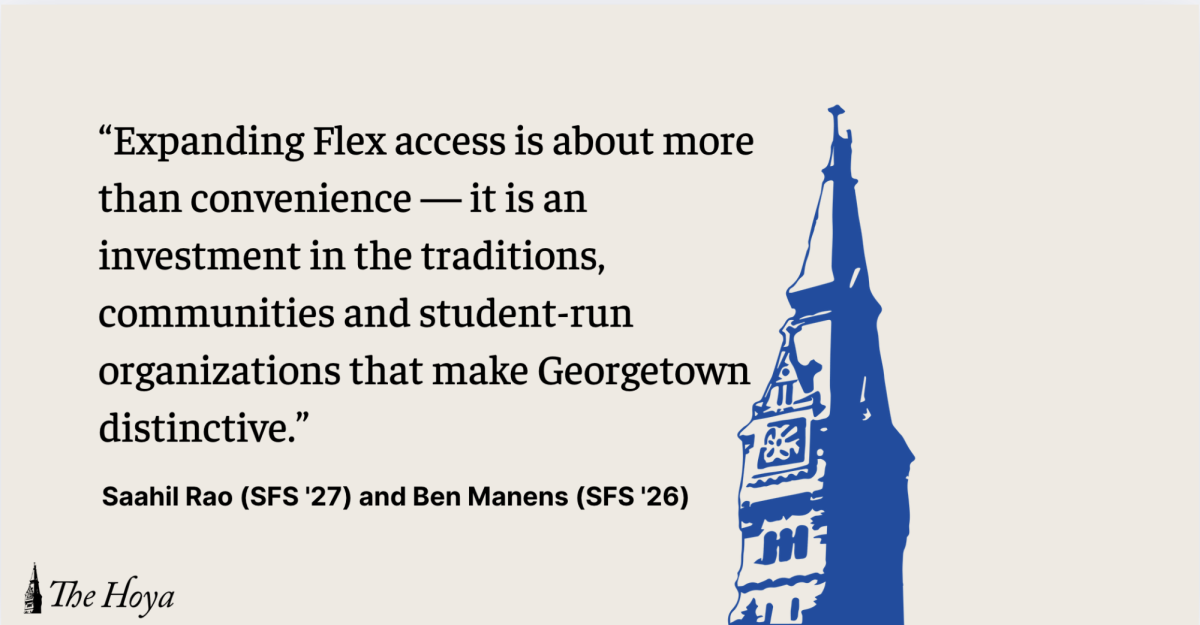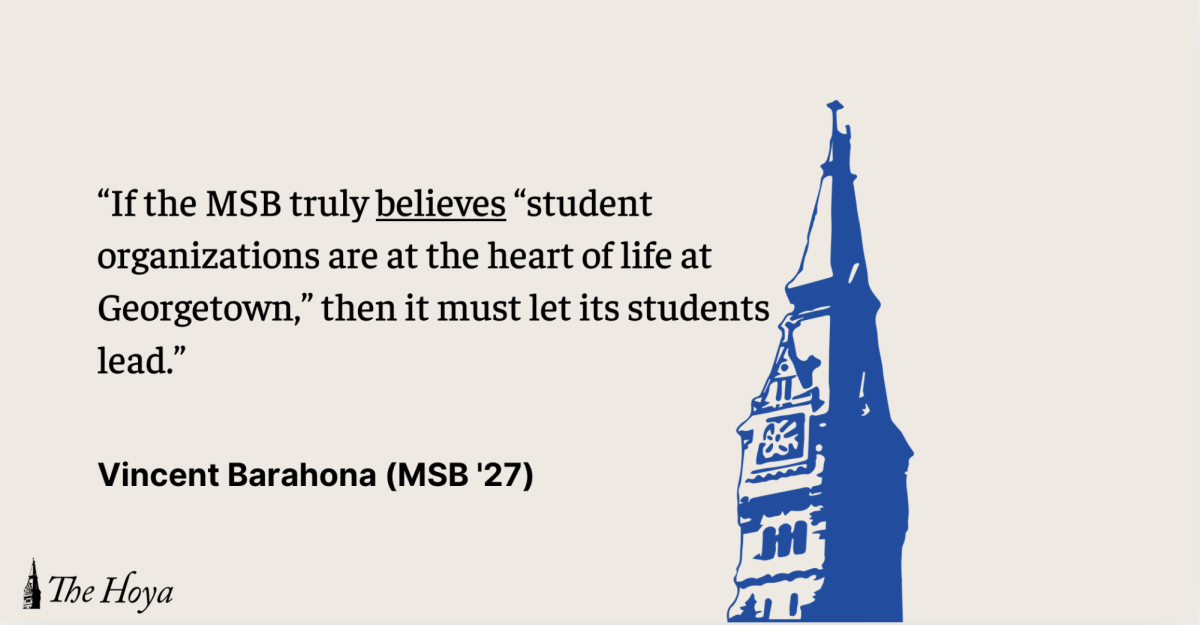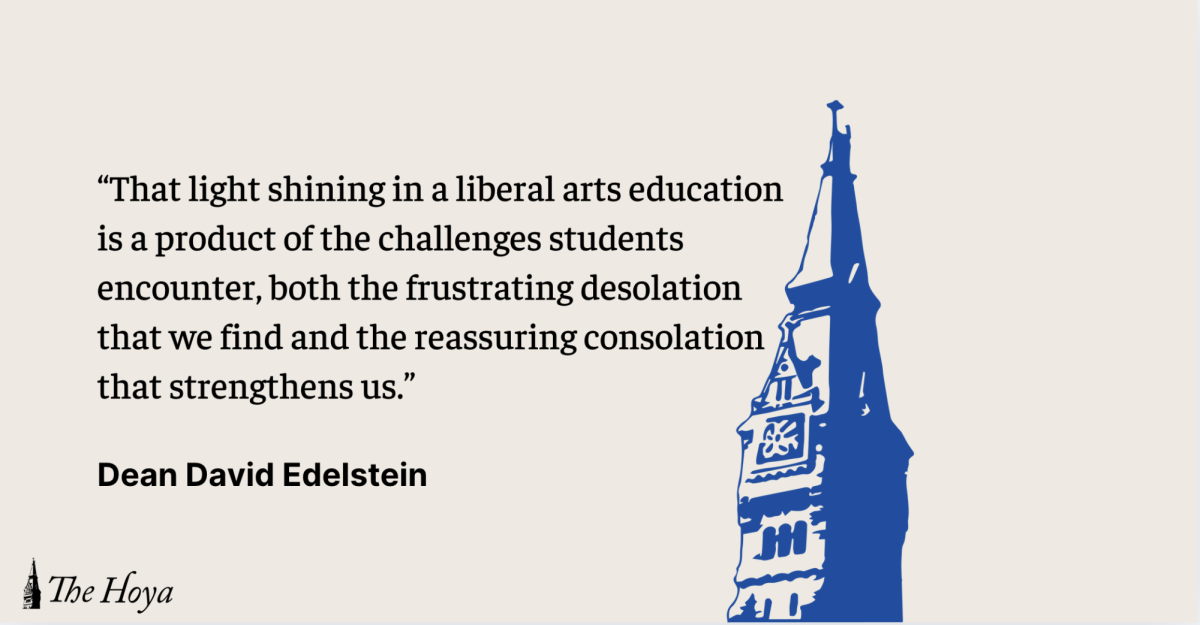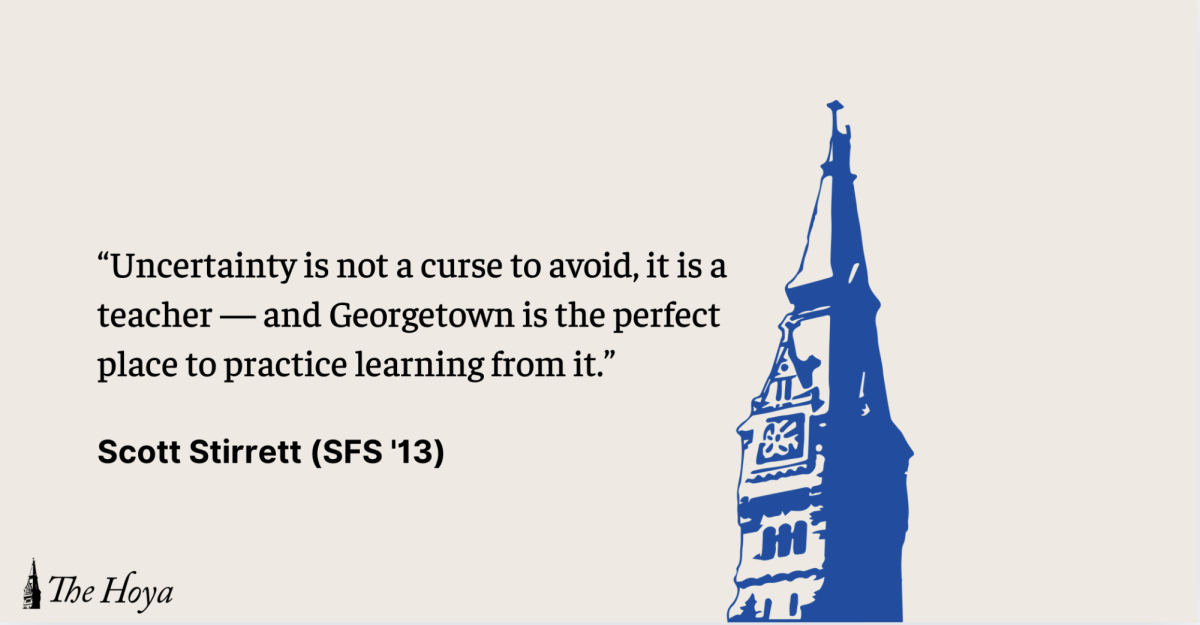At a school as politically engaged as Georgetown University, it seems like everyone has a strong opinion on everything. Students are ready to launch into long, passionate spiels about what they believe.
However, it certainly seems there is a percentage of the population that does not have the interest or resources to develop evidence-riddled opinions on niche topics, including those within the fields of international affairs or politics.
Developing opinions is integral to personal growth and takes time. Arriving on campus without informed judgments about these unconventional topics is a common experience — after all, college should be a place that provides you with the opportunity to form these opinions. But in reality, the existing college culture of social media amplification and performative activism shapes how people choose to present themselves, thereby impacting the sharing of their opinions.
As college students navigate the early stages of self-discovery, they undergo the challenge of developing and understanding their positions on important issues. Thus, they may fear ridicule for lacking a definitive stance or for overstepping by pretending to know more than they do. These circumstances lend themselves to viral videos that circulate online in which students fumble their way through explaining their thoughts on major world affairs.
There are undoubtedly students who have unwavering thoughts on certain topics — opinions rooted in their upbringing. However, after digging into conversations with my friends on their opinions on politics or international affairs, I have found that sometimes these opinions are either uninformed and not backed by evidence or that students cannot clearly articulate how they developed their argument. Their opinions stop developing beyond the influence of their upbringing, failing to understand the broader challenges or supports to their ideas.
Furthermore, the pressure to sound intelligent often results in students feigning confidence or adopting opinions simply to fit in, potentially leading to an echo chamber where there is no further development of ideas.
Georgetown should be a resource to effectively develop solid opinions and thought processes. Personally, I have found myself solidifying my opinions as I read and learn more through my classes. Reading Thomas Paine and Immanuel Kant, for example, has taught me how to make a good argument supporting liberal democratic processes. While I had previously held beliefs that aligned with this ideology, I would have been unable to make a coherent argument without taking advantage of the resources available to me in college.
College should be a space for exploration, where students are exposed to diverse ideas and begin to refine their own views. Professors, peers and student organizations offer a wealth of perspectives that can challenge preconceived notions and encourage growth. The key is to embrace this uncertainty and engage in intellectual curiosity without fear of judgment.
But this requires a willingness to admit ignorance and maintain an openness to learning — and I have seen these traits go undervalued in today’s hypercompetitive academic and social environments.
The student culture at Georgetown can play a significant role in shaping this environment. Instead of perpetuating a performative culture of knowledge, we should work toward creating spaces where questions are encouraged and exploration is normalized. Events like debate forums, speaker panels and discussion groups can serve as platforms for students to voice their evolving opinions without fear of ridicule. Faculty members and student leaders also bear responsibility for fostering this culture by modeling intellectual humility and emphasizing the value of learning over performance.
It’s time to rethink what it means to be “well-informed.” Instead of prioritizing how much one knows, we should focus on how one thinks. Students must resist the urge to fall into the trap of intellectual posturing and instead embrace the vulnerability of admitting when they don’t know something. Ask questions, seek out diverse viewpoints and allow your opinions to evolve.
The ability to approach topics with curiosity, consider diverse perspectives and adapt opinions based on new evidence is far more valuable than confidently spouting uninformed takes. This approach not only benefits individual students but also enriches the collective intellectual fabric of Georgetown.
Aashi Bagaria is a first-year in the School of Foreign Service. This is the first installment of her new column “Grey Matters.”


